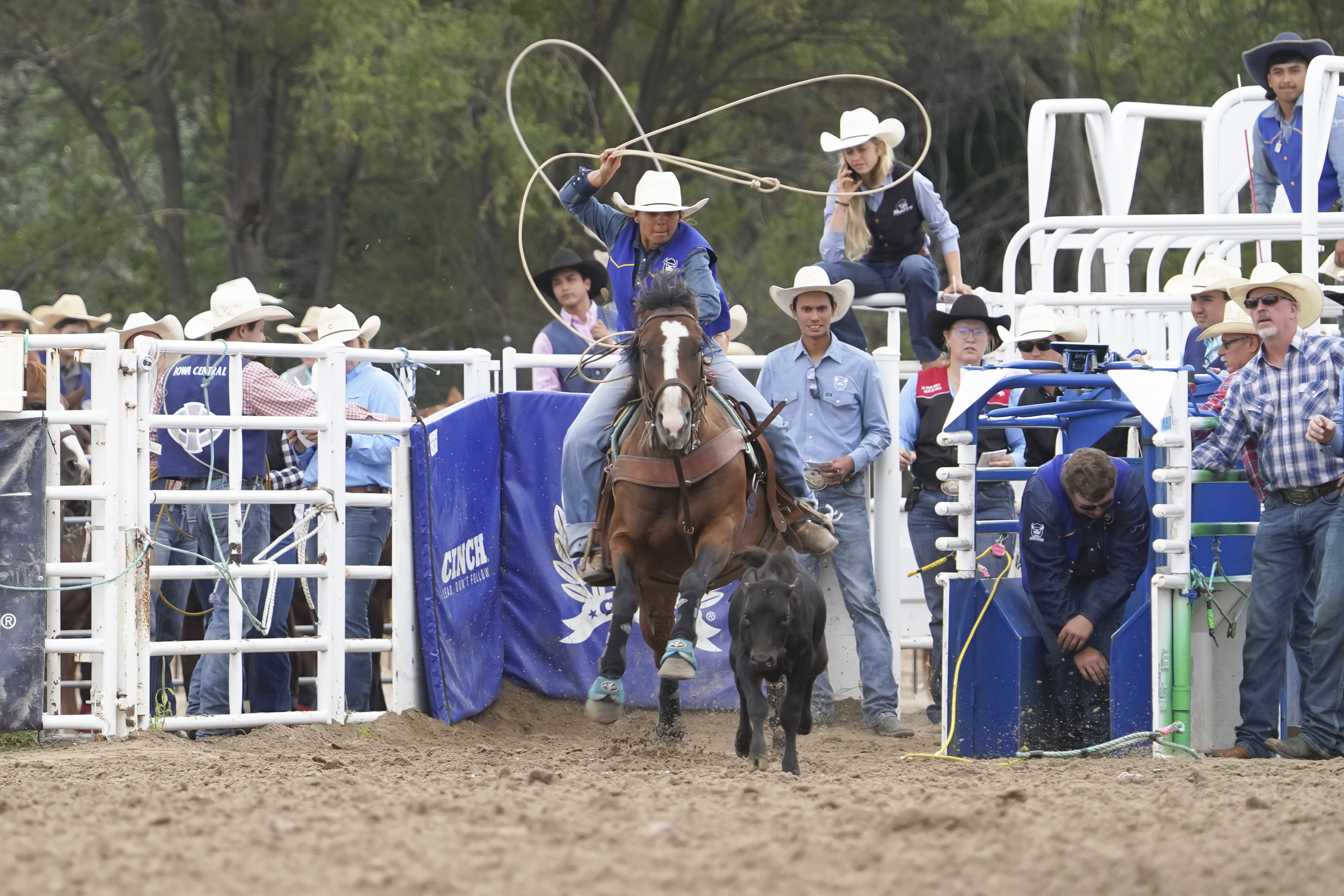MCC science students present research on isopods

(From left): Dylan Harvie, MCC Science Instructor Rob Bogardus and Josiah Goshert at MCC’s annual Biology Research Symposium.
The scientific research of two McCook Community College sophomores were centerstage Wednesday as part of the annual Biology Research Symposium. Students presented their findings in Tipton Hall’s Weeth Theater.
Sophomores Dylan Harvie (McCook) and Josiah Goshert (Arapahoe) offered their original research on terrestrial isopods, also known as roly polies.
MCC biology instructor Rob Bogardus said this is the seventh time MCC has offered this class and subsequent symposium. It was designed to allow biology students the chance to create and conduct original research, and to create their own experiments to answer questions that have never been tested before. Students also write grant proposals to acquire resources.
Harvie said his experiment was agriculturally inspired. He wanted to see if one species was more productive than another in contributing more useful waste material to the soil. He collected 30 samples each of two species – all the same size. He added the same amount of dried corn leaf to both groups. Over three weeks he found that while both species had nearly identical growth, one species consumed less but contributed more nutrients to the soil. The other species, which is more prevalent in the area, ate more but produced less feces and had a higher assimilation rate.
Goshert said in his early research he learned that cannibalism is evident in isopods, but scientists don’t really know why. He hypothesized that cannibalism is based on hunger. He set up 45 containers with two isopods each with varying amounts of cottonwood leaves. He thought those with less food would be more likely to cannibalize the other isopod in the container. He was surprised that the reverse was true and that the isopods who had the most food also had a higher cannibalism rate. Goshert hypothesized that isopods fought over leaf availability, leading to death. Bugs with no food were unwilling to risk conflict. He also believes the cannibalism didn’t occur until after one of the isopods had died.
Both students collected isopods at Barnett Park but Harvie had to order some additional samples because he was collecting a specific species. Both said their research seemed to lead to more specific questions and more opportunities to expand and/or refine these types of experiments.
Bogardus said establishing the class in 2014 came at a time when STEM careers were dramatically increasing and said that demand continues today. Scientific research is a part of many science jobs resulting in highly competitive graduate programs. MPCC created this course as one way to offer students a way to hone their research skills and knowledge to help them in that competitive field.
Dr. Whitni Redman was the first MCC student who took this class and Bogardus said she was instrumental in establishing the class by asking for a way to give her experience in scientific research. After graduating from MCC, Redman received her bachelor’s degree in biochemistry at Peru State College, got her doctorate at Texas Tech University Health Sciences Center School of Medicine and is now a research professor at Binghamton University in New York.
The research class, BIOS 2500, is a one-semester experience in being a scientist. The class is normally offered in the fall semester. MCC has devoted a designated research space in the former greenhouse on the west side of Barnett Hall, to house the research equipment as well as the experiments.
Bogardus said terrestrial isopods are used because they are easy to find locally and relatively inexpensive when it comes to setting up experiments. They are important contributors to plant decomposition and soil quality – another locally relevant aspect of the research. Isopods are also known as pill bugs or wood lice. They are actually crustaceans, like lobsters.

